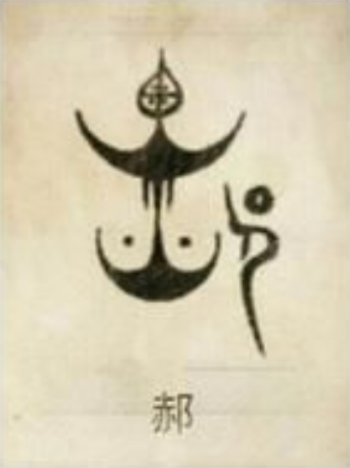The Hao(hǎo) surname is one of China’s oldest family names, with a history that spans over 3,000 years. For friends interested in Chinese culture, the story of the Hao surname can serve as an interesting window.

Ⅰ、Origins of the Hao Surname
Take the county as the surname:
During the Shang Dynasty (around 1600–1046 BCE), King Di Yi granted his son, Zi Qi, the territory of Hao near present-day Xi’an, Shaanxi Province. His descendants adopted “Hao” as their surname, marking the primary origin of the name.
2. Ethnic Integration:
During the Northern and Southern Dynasties (386–589 CE), the Xianbei ethnic group, specifically the Haogu clan, adopted the Han Chinese surname “Hao” as part of a broader cultural assimilation policy.
3. Other Sources:
Some Hao families originated from the simplification or transliteration of surnames used by ethnic minorities, such as the Mongols and Manchus.
Ⅱ、Historical Figures:
1. Politics and Military:
Hao Zhao: A renowned general of the Three Kingdoms period, celebrated for his defense of Chencang against Zhuge Liang’s northern expeditions.
Hao Chujun: A Tang Dynasty chancellor known for his integrity and outspoken advice.
Hao Yaoqi: A Ming Dynasty rebel leader who later contributed to the Qing Dynasty’s unification efforts.
2. Culture and Academia:
Hao Yixing: A Qing Dynasty scholar and philologist, famous for his work Erya Yishu (Commentary on the Erya).
Hao Yu: A Qing Dynasty poet and calligrapher, known for his literary works.
Hao Bolin : A modern physicist and pioneer in statistical physics and computational biology.
3. Social Leaders:
Hao Jianxiu: A prominent figure in China’s textile industry and former Vice Chair of the Chinese People’s Political Consultative Conference.
Ⅲ、Cultural Significance:
1. Family Teachings:
The Hao Family Instructions, compiled during the Qing Dynasty, emphasize filial piety, humility, and diligence. These teachings have been passed down through generations, shaping the moral character of Hao descendants.
2. Ancestral Halls and Symbols:
The Hao family takes pride in ancestral halls and symbols such as the “Taiyuan Hall”and “Sun-Drying Books Hall”, which honor their roots and historical figures like Hao Long, who symbolized wisdom and learning.
Ⅳ、Social Impact:
1. Migration and distribution
From the Qin and Han to the Sui and Tang dynasties: Centered in Taiyuan, Shanxi it spread to Shaanxi and Hebei; during the Tang Dynasty, the capital of Jingzhao was formed.
Song, Yuan, Ming, and Qing dynies: With the migration tide, it moved south to Sichuan and Jiangnan; the migration from Hongtong Big Locust Tree in the early Ming Dynasty the distribution in North China.
2.Historical Contributions:
Hao descendants have played pivotal roles in defending the nation (e.g., Hao Zhao) and advancing culture (e.g., Hao Yixing).
3.Global communication:
During the Ming and Qing dynasties, some Hao families migrated to Southeast Asia. Today, overseas Hao descendants continue to promote Chinese culture worldwide.
Conclusion
The Hao surname is a microcosm of Chinese history, reflecting the resilience, adaptability, and cultural richness of the Chinese people. From its origins in ancient Shanxi to its global presence today, the Hao family has consistently upheld its values while contributing to society in meaningful ways. For those interested in Chinese heritage, the story of the Hao surname is a testament to the enduring power of family, tradition, and cultural identity.